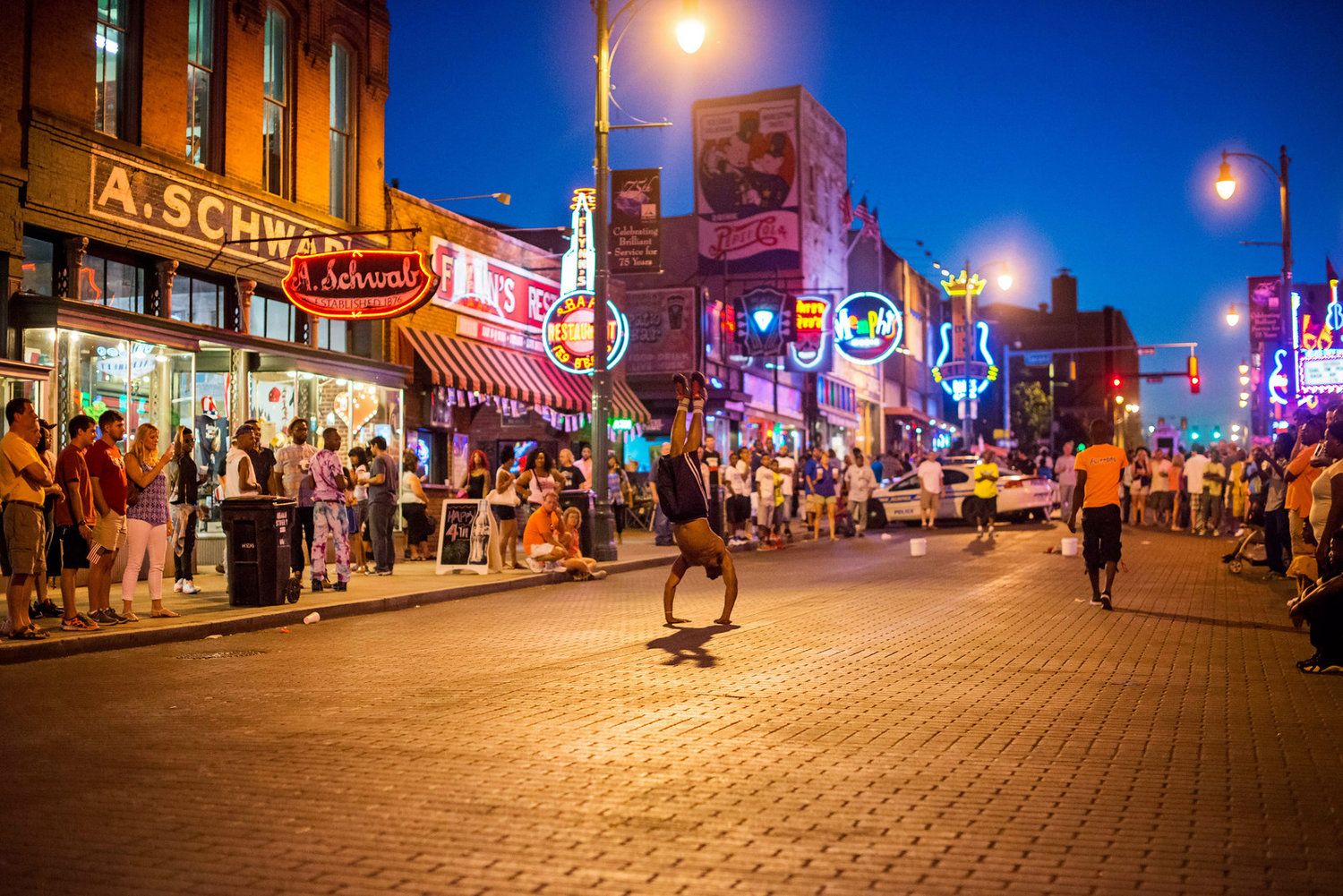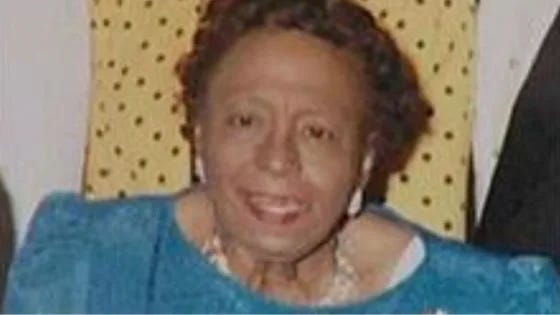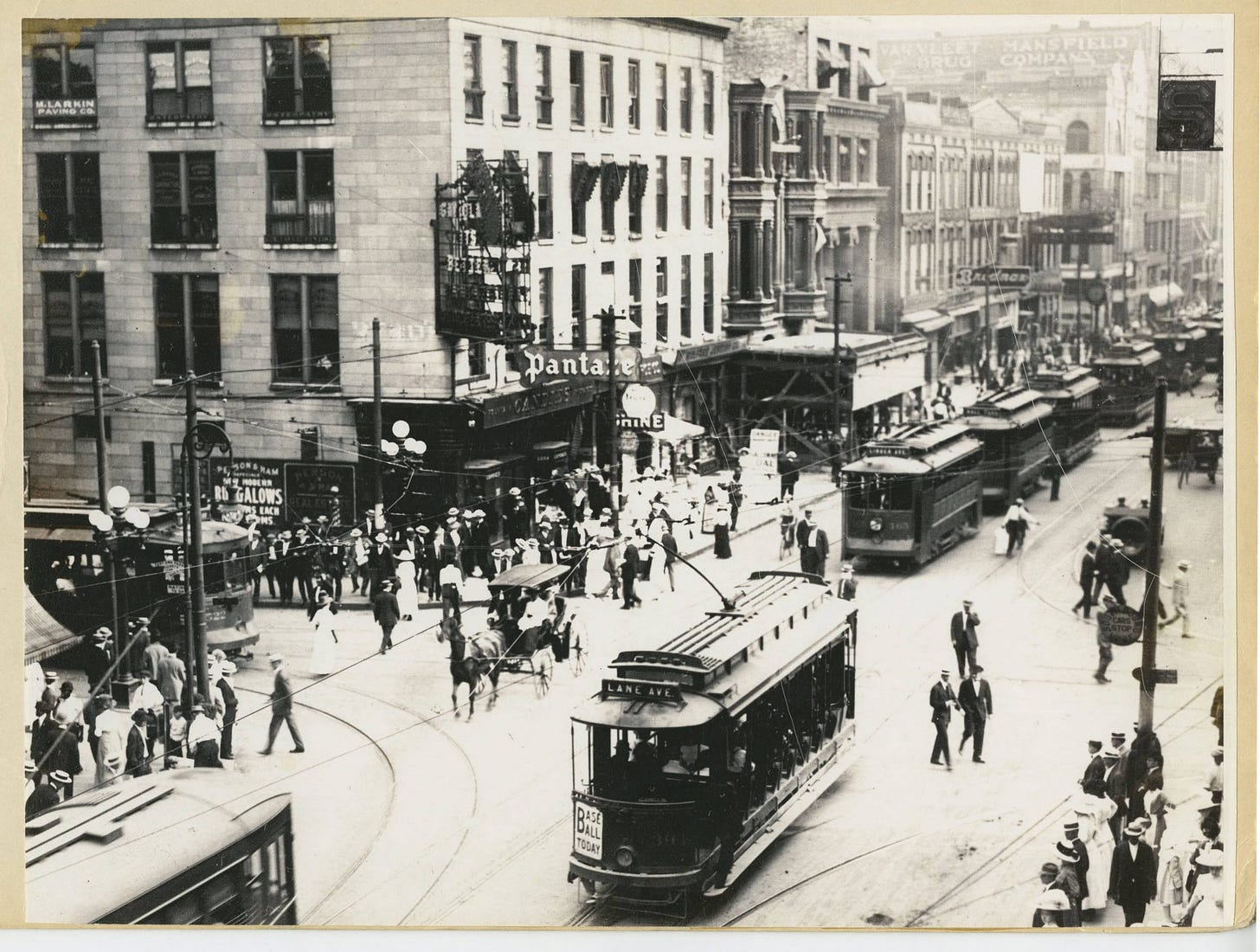Walkin' in Memphis
Racism is as much about power as it is hatred of others, but black policemen killing a mostly innocent young black man is about something we cannot grasp.

“There is no such thing as race. None. There is just a human race. Scientifically and anthropologically.” - Toni Morrison

The first time I encountered racism was in Memphis. I was twice the age of the Brown v. Board of Education landmark Supreme Court ruling ordering the desegregation of U.S. public schools, a decision that only increased racial antipathy, instead of cooperation, by Southern Whites. My father was taking a few of his children home to Mississippi to meet family and we had stopped for gas at a filling station on old Highway 51 on the north side of town.
My childhood environment was white. We lived in a small settlement of southern diaspora who had come north for jobs in the car factories in the Post World War II economic boom. Even though our families were generally economically disadvantaged as laborers, we had still managed to congregate in a manner that excluded Blacks. They were, of course, red-lined out of getting even VA bank mortgages for homes in that area, which meant when I graduated from high school there was still not a single person of color in our student population of thousands.
My father led me around to the side of the gas station for a bathroom break and I waited outside for him after he opened a door with a sign that said, “White men.” Immediately adjacent was another bearing the words, “White women.” When I looked toward the corner of the building, I saw a sign with an arrow pointing to the back that had one word: “Colored.” I walked over to explore and heard my father’s voice calling.
“Where you at, buddy boy? You better get over here, and now.”
“I’m here, daddy.” I came into view from out back.
“What you doin’ back there? You got no business out there.”
“I wanted to see what coloreds were.”
“You know what they are.”
“A little bit. But why does that sign show them out there?”
“They ain’t out there. That’s where their bathroom is.”
“Why do they have a different bathroom.”
“Cuz ain’t no white person gonna sit on a toilet where a n****r did. Now lets’ go.”
His last words in that moment have never left my memory. My father was raised a racist by parents who believed humans with different skin color were somehow lesser beings. He was still using racist terminology into his seventies and only quit in my presence when I told him he would never be around his granddaughter if he were unable to abandon the epithets. His perceptions and opinions, of course, did not change. He once tried to explain his beliefs to me by saying, “God made Blacks and Whites as different from each other as he did dogs from horses, and he did it for a reason.” I did not ask for an explanation of God’s thinking. I did not want to know what was secreted in the convolutions of my father’s brain.
Maybe it’s because I associated Memphis with such an unsettling memory that the city has remained with me as an icon of our country’s inability to understand ourselves and heal. I’m not thinking only of the murder of Dr. Martin Luther King, but that has undoubtedly had much to do with the city’s image in the American psyche. While the culture has mostly thrived, there is a logical case to be made that the anticipated economic expansion has probably failed because Memphis still has not resolved the issue of race, any more than the rest of the U.S., and what happened to Tyre Nichols has only made the subject more confounding.
If geography were the only element to define destiny, Memphis would have long ago become a giant, international city. Downtown sits on the banks of one of the world’s greatest rivers for shipment and is halfway between the Mississippi’s headwaters and the port of New Orleans. Immeasurable amounts of natural resources and produce have transited the river through Memphis, which was also once the location of the largest spot cotton market in the world. The construction of the Interstate Transportation and Defense System also ought to have delivered Memphis even more commerce. The north and south I-55 and east and westbound I-40 seemingly created an epic crossroads right in the heart of America, or at least its right ventricle.
There have been times in the history of Memphis where instructive, even predictive, information has been decidedly ignored and caused crises. The recent police chief the city hired from Atlanta, Cerelyn, C.J., Davis, had been in charge of running a special police unit in her former city called “Red Dog,” which was criticized frequently as being “hyper aggressive.” Public backlash and a series of lawsuits resulted in the organization being disbanded but not before there were reports of people subjected to public cavity searches for drugs, and the thirty officers on the squad frequently ambushing young men. There were also multiple allegations of violence during the time Davis oversaw the Red Dog operation.
Davis could not have created the Scorpion Unit in Memphis without her Atlanta record undergoing some scrutiny. Why she thought it was a good idea to send groups of officers to the streets in her new role has not been explained beyond her claim that she believed there was an “outcry” from the public about a rising murder rate. In Atlanta, she had been given control of the Red Dog unit, narcotics, and SWAT. The narcotics team shot and killed a 92-year-old woman in a botched drug raid, which prompted Davis being named in a $4.9 million dollar lawsuit and final court judgment that accused the Atlanta unit of a “pattern and practice of ignoring and violating the rights of the citizens of Georgia.” Officers were frequently accused of planting drugs and lying to obtain search warrants.

The Memphis managers who decided to hire Ms. Davis were not only ignoring her very public resume’ from another major American city, but they had also turned their back on the painful history of their own community. In the wake of the assassination of MLK, Memphis became one of several American cities that set up police “Red Squad” teams to monitor civil rights activists and political protestors within the local populations. In Memphis, the police department operated on the conviction that mostly African Americans, angered by the King murder and the rising black power ideology, combined with white students protesting the Vietnam War, would create an environment with potential for chaos and violence, and, at a minimum, dangerous levels of discontent. Unsurprisingly, (at least in retrospect), Red Squads coordinated surveillance efforts with the FBI and state investigative agencies to observe any person or group who might represent a threat to established political interests. If you were perceived as an enemy of conventional thinking, you were under Red Squad scrutiny. It was nothing more than a counter-intelligence operation to harass and disrupt the political efforts of black and white activists who had been animated by the King killing.
Was everyone in Memphis oblivious to the city’s past when the Scorpion Unit was created, or when Davis was offered the chief’s job? Only three years after the King assassination, a young black man, who had decided to evade police on a traffic violation like Tyre Nichols, was chased by white officers from Memphis and the local Shelby County Sheriff’s Department. When the 17-year-old Elton Hayes was finally arrested, he was bludgeoned to death in a ditch. It took two years for the nine officers involved, a number that included a black lieutenant, to be arrested and brought to trial on charges of murder and an attempt to commit murder. They were all acquitted. The verdicts prompted protests and civil disobedience and the Red Squad was deployed into the midst of the unrest. Officers were accused of attacking demonstrators, blowing up an organizer’s car, tapping phones and photographing people protesting the blatant injustice.
What happened to Memphis is an American story that defies simple explanation. When African Americans became increasingly politically active after the King assassination, white flight began to the suburbs from the urban core. A period of economic decline began in the city even as capable Black leaders were taking office. New business did not come to the city and a national magazine described the community as a “Southern backwater” and a “dying Mississippi River town.” The struggle is best told through the departure of Holiday Inn, which was founded in Memphis in 1951. The city did not become a center of commerce residents and business leaders had envisioned and the local hotel chain left town for Atlanta.

CEO Bryan Langton’s admission that Memphis was inadequate for the growing hotel chain had to have hurt. He said the homegrown company was leaving for Georgia because Holiday Inn needed an international city “to build our brand worldwide and to meet the needs of the global marketplace. We need the resources and the infrastructure that Atlanta provides, an international transportation center, an international financial and media center, and an international business community.”
Things looked a bit more optimistic exactly twenty years earlier when Fred Smith, a Memphis Marine, came home from Vietnam and set up a service that guaranteed overnight delivery to any city in the U.S. He began his first shipments a few years later in 1973 and started the company with seven packages and eleven cities. Federal Express is now a global corporation and a package delivery service depended upon by countless businesses, and worth, probably, a few billion. His innovative thinking has managed to make Memphis the second busiest air freight and cargo center in the world, behind only Hong Kong.
Smith’s innovation, though, hasn’t rewritten the fate of Memphis. There seems almost a psychological burden and maybe even a karmic fate on the city. When W.C. Handy wrote “Memphis Blues” on Beale Street, and started the blues movement in music, Memphis also launched soul, and rock and roll, and there seemed unbridled cultural and economic promise. In that city, Elvis Presley, Aretha Franklin, and Dolly Parton, were born and gave the world a music that has never stopped playing. Something was amiss, though.
Why were people not drawn to such a place? Was it because the Choctaw Indians had begun their government-ordered march of the Trail of Tears to Oklahoma by crossing the big muddy river and walking westward? Or is there a debt to be paid for the Three-Day Riot where police and firemen, mostly of Irish descent, killed 46 African Americans, raped dozens of women, and destroyed more than 100 homes? Was Memphis cursed by the Yellow Fever that infected 17,000 people and killed more than 5000, which prompted more than 25,000 to leave the town in the late 1800s?
What American city does not have a portion of these sins in its history? Ultimately, Memphis confounds us one more time. The death of Tyre Nichols seemed to be not, specifically, about race. The men who ended his life were black police officers. Their behavior made a mockery almost of the words of Dr. King in the town where Nichols was killed. Racism is as much about power as it is about hatred of others, but black policemen killing a mostly innocent young black man is about something we cannot grasp. Were they angered because he was one of them and was acting in a manner of which they did not approve? Logic seemed not to be involved in their behavior but what prompted the violent and emotional response? Stopping the assault seemed the easiest course of action but they pressed on until a young man was dead because of an alleged traffic violation.
Put on my blue suede shoes
And I boarded the plane
Touched down in the land of the Delta Blues
In the middle of the pouring rain
Touched down in the land of the Delta Blues
In the middle of the pouring rain.
-"Walkin' in Memphis," Marc Cohn
I have wondered how it did not enter the minds of those officers to simply stop what they were doing. Maybe it is expecting too much to believe they ought to be able to see themselves in the frightened eyes of the young man whose life they were ending. Nothing that was happening appeared to be about race. Black men were killing another black man. Is the human condition so depraved we are unable to understand what we are doing and why? Maybe when it comes to police there is no ethnicity, and their only race is “cop” and woe to those who challenge their authority. Is a badge the only difference between a policeman and a convict?
Weep for Tyre, and for Memphis, and all the things that never were, and never will be.